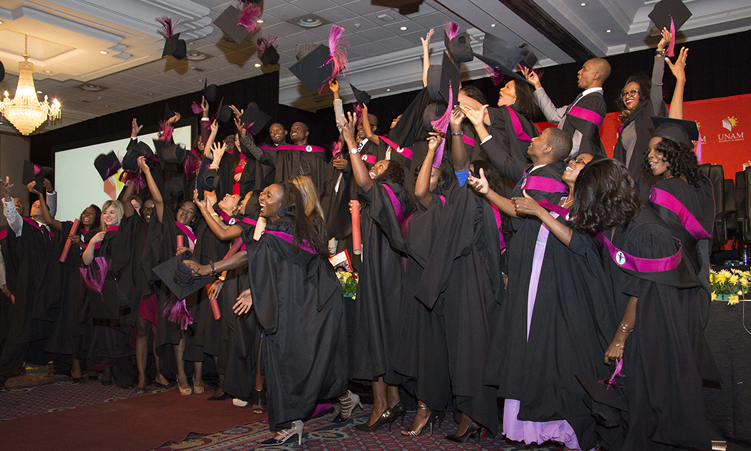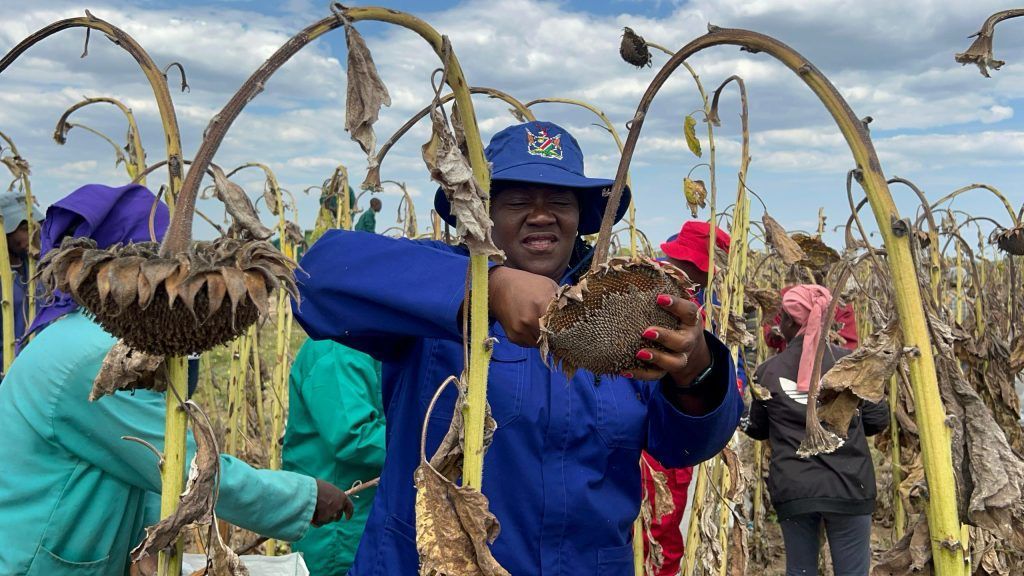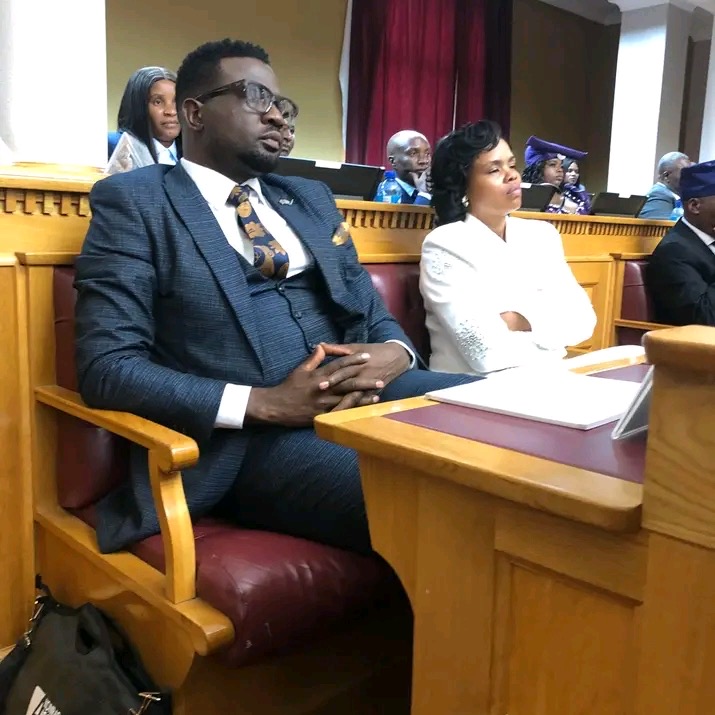…over 6 900 graduates released into the job market with little prospects
When Asser Uudhila (21) graduated in 2022, he had high hopes for the future.
He had just acquired a degree in transport management from the Namibia University of Science and Technology (Nust) and was excited to enter the job market. Two years later he is yet to secure employment.
“Since the day I graduated, I have been dreaming and wanting to get my career job… I have submitted applications countless times, but with no success,” he says.
Uudhila shares this predicament with thousands of Namibian graduates.
He says the most challenging part of being unemployed is not being able to afford to make copies and travel to job interviews.
Martin /Gaoseb (27) has a diploma in technology of civil engineering from Nantong Vocational University in China.
He has been unemployed since 2022.
“I have lost count, I have tried applying for jobs [through] emails, online applications and given in my documents physically … I have begged for internships but was never given a chance.”
/Gaoseb says he cannot even afford basic necessities.
“The feeling of dread, wondering if I will ever catch a break … I am always wondering how I will achieve my aspirations if it is this difficult to get a simple internship, and just total shock at the lack of interest of firms and the government in helping to establish aspiring engineers.”
/Gaoseb calls on the government to address the current unemployment crisis plaguing Namibia.
He feels the field is saturated, with 1 600 engineers registered with the Engineering Council of Namibia.
“Maybe they are happy with the figures and some of us just being statistics… Maybe I should settle for a job in a shop because clearly this nation does not need my help to build itself, or so my situation has convinced me,” says /Gaoseb.
Valencia Roman (23), who graduated with a degree in communications from Nust this year, says finding a job in Namibia is very hard and one needs connections to succeed.
“In a country like Namibia, where people work mostly on connections, who they know gets them in faster.”
Another challenge entails graduates not being equipped with knowledge on how to apply for jobs, she says.
CV building is an important skill that most graduates often lack and graduates and students should work on these skills, she adds.
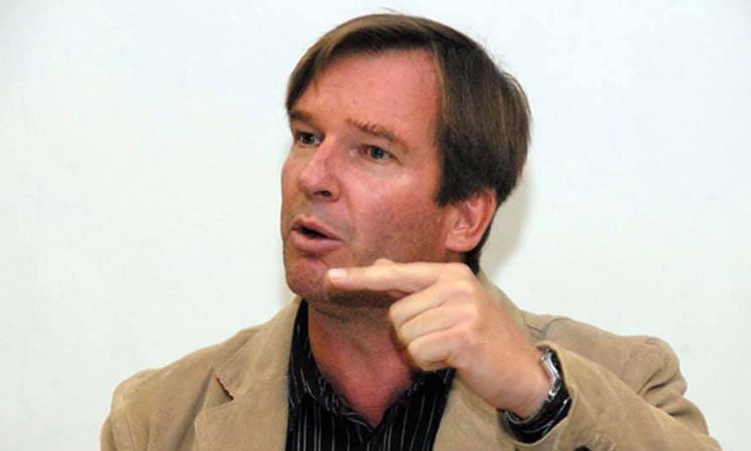
NOT ENOUGH JOBS FOR EVERYONE
Labour expert Herbert Jauch says the possibilities of all the graduates finding meaningful employment are quite slim.
“A large part of them will probably not be able to find work and they will be very frustrated that they completed their studies and are still unable to be absorbed in the labour market.”
He says the labour market is not growing due to little processing of minerals in the country and the export of unprocessed minerals.
The manufacturing sector is underdeveloped and it’s an area where many graduates could have been absorbed, he says.
He called for developmental state intervention, where the government identifies specific areas and promotes them so that businesses and services can emerge. He cites an example of the roll-out of solar energy plants at household and industry level, where engineering graduates and other technically trained young people can be accommodated.
The country’s housing needs can also provide opportunity for various jobs, he says.
“The issue of having qualified young people that are unemployed and have little chances of finding jobs in the future is simply unacceptable. These young graduates deserve better.”
Namibia Chamber of Commerce and Industry president Bisey /Uirab urges students to not only study fields that make them employable, but ones that allow them to create jobs.
He further says it is important to look at the job opportunities provided by various fields.
According to /Uirab, although experts in the fields of accounting and engineering are needed, students should also look at going into vocational training fields.
He says relevant career guidance on job market trends and needed fields should be provided by schools.
“It’s very important for businesses and academic institutions to work together to produce products that are geared towards meeting the needs of the market.”
A total of 2 243 students are due to graduate from Nust this year, with women comprising 57% of graduates.
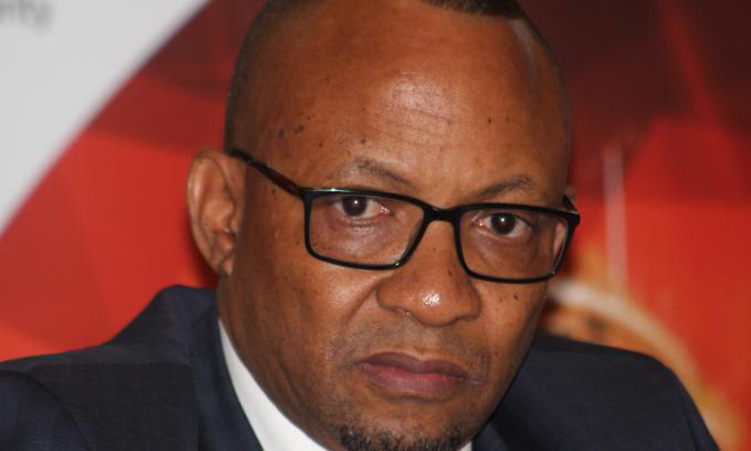
According to statistics provided by Nust, of the 2 243 graduates this year, 962 are male students and 1 281 are female students.
Last year, 2 493 students graduated, comprising 1 089 male and 1 404 female.
Nust held a graduation ceremony in Windhoek on Thursday and Friday last week.
A total of 6 926 students have graduated form the University of Namibia (Unam), Nust and the Namibia College of Open Learning (Namcol) this year.
Unam spokesperson Simon Namesho says that the university has produced 3 942 graduates, with the faculties of education and human sciences producing the highest number – 2 278, followed by the health sciences and veterinary medicine at 701.
Unam has produced 2 682 female graduates and 1 266 male graduates across all campuses.
“The university did not track the employment rates of its graduates in the past. Starting this year, it will begin conducting tracer studies to gather this information,” Namesho says.
The last employment tracing study conducted was a collaboration between the National Council for Higher Education and institutions of higher learning, including Nust and the International University of Management.
Namcol spokesperson Rholene Bok says 741 students graduated in technical and vocational educational training fields.
“The certificate in early childhood development produced the highest number of graduates within the last few years, of which many have proceeded to do the diploma in early childhood and pre-primary education,” Bok says.
Furthermore, Namcol now offers bachelor’s and master’s degrees, with the first cohorts due to graduate in 2025.
“We started with the exercise of tracking down graduates this year, therefore, we do not have information available at the moment,” she adds.
Stay informed with The Namibian – your source for credible journalism. Get in-depth reporting and opinions for
only N$85 a month. Invest in journalism, invest in democracy –
Subscribe Now!




